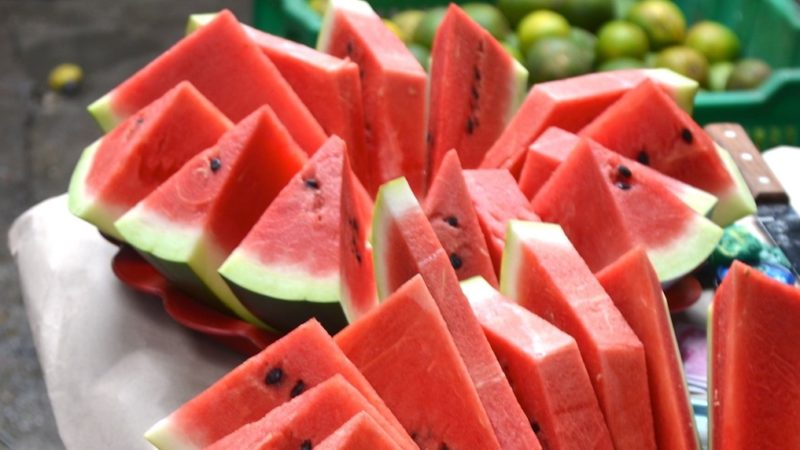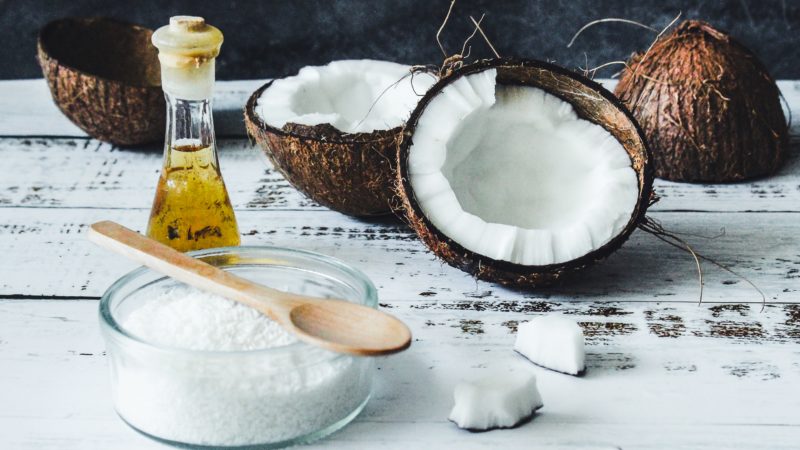List of Common Food Additives That Should Be Avoided

Are you a fan of packaged and processed food? If yes, then its time to take a look at the ingredient list. There is a high chance that you will spot some common food additives that can be found in most food items.
Food additives are used to improve the texture and quality of food and extend their shelf life. Some of these chemicals and food additives are known to have a negative impact on health, and people need to avoid these while others are safe to consume with minimal or no health risk.
In this article, we have provided a list of common food preservatives and additives to avoid and the ones which are safe and the meaning of food additives.
What are food additives?
There are some chemicals or substances that are added to food to improve or maintain the freshness, safety, texture, taste, and appearance of food, which are known as food additives.
Some food preservatives and additives have been in use since centuries like sugar(marmalade), salt(meats) or sulfur dioxide(wine). Some food additives have developed with time to meet the current requirements of food production.
These common food additives ensure that processed food remains fresh and safe to eat after leaving the industries, during transportation to shops, and reaching the customers in the end.
Food additives are derived from animals, plants, and minerals, and they can also be synthetic. There are thousands of food additives, and all have their specific uses to make food safe and more appealing.
List of Common Foods Additives and Preservatives
- Monosodium Glumate (MSG)
Monosodium glutamate is a common food additive that is used to enhance and intensify the flavor of savory dishes. This preservative chemical is found in many foods like salty snacks, frozen dinners, and canned soups. This additive is also found in fast food places and restaurants.
MSG has been subjected to many controversies because it was found to have harmful neurological effects on mice in a 1969 study. (source)
However, there is little to no effect on humans’ brain health because it cannot cross the blood-brain barrier.
MSG consumption is also associated with metabolic syndrome and weight gain in some studies. Some people have experienced syndromes like sweating, headaches, and numbness when consumed MSG in large quantities.
If you are sensitive to MSG or experience any side effects after consuming MSG food additives, you should avoid its consumption.
If you can tolerate MSG, then it’s safe to consume in moderate quantities without any risk of adverse side effects.
- Artificial Food Coloring
Artificial food coloring is an additive that brightens and improves the overall appearance of the food items like candies, popsicles, and condiments. There have been rising health concerns related to food colors in recent years.
Specific food dyes like red 40, blue 1, yellow 5, and 6 are associated with allergic reactions in people. (source) one study found that food coloring agents can promote hyperactivity in children. There are concerts associated with the potential risk of cancer with the consumption of artificial food colors.
Red 3 food color is also known as Erythrosine and has the risk of increasing thyroid tumors in some animal studies, which is why it was replaced by Red 40 in most of the foods. (source)
Regardless of their negative effects, artificial food coloring is primarily used in processed foods that need to be limited in healthy diets. You should always eat whole foods with high nutrient content and free of artificial colors.
- Sodium Nitrite
Sodium nitrate is commonly found in processed meats. It acts as a preservative to stop the growth of bacteria while adding reddish-pink color and salty flavor.
When this common food additive is exposed to heat and is in the presence of amino acids, it can turn into nitrosamine. Nitrosamine is a compound that is known to have many harmful effects on health.
High intake of sodium nitrosamine and nitrates was known to increase the chances of stomach cancer. (source). Many other studies have also found that high consumption of processed meat can cause breast, colorectal, and breast cancer. Nitrosamine also increases the risk of type 1 diabetes.
It’s best for health to minimize the consumption of processed meat and the intake of sodium nitrate in any form. Try healthy alternatives for processed meat like sausages, bacon, ham, and hot dogs.
Legumes, beef, chicken, pork, eggs, and nuts are some healthy high protein options that should be a part of your diet.
- Guar Gum
Guar gum is a long-chain carbohydrate that is used to bind and thicken the foods. This is used widely in the food industry and is mostly found in salad dressings, soups, and sauces.
Guar gum is rich in fiber and has multiple health benefits. Guar gum is one of the healthy food additive examples. It is known to reduce the symptoms of irritable bowel syndrome-like bloating and constipation. It is also beneficial in reducing cholesterol and blood sugar levels. (source)
However, high consumption of guar gum can have adverse impacts on health. This happens because it swells 10-20 times more than its size, causing damage to the intestine and esophagus.
Guar gum can cause some mild symptoms like bloating, gas, or cramps in people. It is better to consume it in moderation.
- High Fructose Corn Syrup
High Fructose corn syrup is a corn-based sweetener, and it can be found in juice, soda, breakfast, cereals, candy, and snack foods.
It has a high quantity of fructose, which can cause some serious health problems when consumed in high amounts. High fructose corn syrup is a common food additive that is linked to diabetes and weight gain.
It was found in a study done on 32 people who consumed sweetened drinks either with fructose or glucose for up to 10 weeks. It was found in the end that fructose beverages increased belly fat and sugar levels and decreased sensitivity to insulin when compared to glucose sweetened beverages. (source)
High fructose corn syrup also adds to extra sugar and calories without adding any nutritional value, minerals, and vitamins to the food that your body requires.
Keep these sugary beverages and snacks away from your diet. Instead, consume unprocessed food without any added sugar and use yacon syrup, or fresh fruits as sweeteners.
- Artificial Sweeteners
Artificial Sweeteners is a food additive that is added to many beverages and foods to enhance sweetness and reduce calorie content.
Some common artificial food additive sweetener examples are sucralose, acesulfame potassium, aspartame, and saccharin.
Artificial sweeteners can help in losing weight and managing blood sugar levels.
It was found in a study that people who consume artificial sweetener beverages and foods for ten weeks had reduced calorie intake and gained less body fat in comparison to people who consume regular sugar. (source)
If consumed in moderation, artificial sweeteners are safe for health. However, it may cause a headache if a person is sensitive to artificial sweeteners.
- Carrageenan
This food preservative is derived from red seaweed. Carrageenan acts as an emulsifier, thickener, and preservative in different food items.
Some food items that include this food additive are cottage cheese, almond milk, ice cream, dairy-free products, vegan cheese, and coffee creamers.
People have shown concern about the health effects of Carrageenan. Carrageenan is known to have negative effects on digestive health and can also cause intestinal ulcers and growth.
If you plan on limiting the intake of Carrageenan, there are many resources online to find products and brands free of carrageenan.
- Sodium Benzoate
Sodium benzoate is a food additive that is found in acidic foods and carbonated drinks like pickles, salad dressings, condiments, and fruit juices.
This is also a common food additive but has been recognized safe by the FDA. However, several studies have been conducted in which it was found that sodium benzoate, combined with artificial food coloring, increases hyperactivity in 3-year-old children. (source)
Carbonated beverages that contain benzene in high concentrations and sugar-free beverages are more prone to the formation of benzene. Check food labels to minimize the intake of sodium benzoate.
Avoid food with ingredients like benzene, benzoic acid, especially if combined with citric or ascorbic acid.
- Trans Fat
Trans fat is unsaturated fat that has undergone hydrogenation that helps in increasing the life of a product and also improves product consistency.
This is a common food additive found in processed and baked food items like biscuits, popcorn, margarine. Trans fat is associated with a number of serious health risks.
Trans fat can increase inflammation and is a risk factor for heart diseases. The easiest way of limiting trans fat consumption is by cutting processed foods.
Use alternative of trans fat like butter instead of margarine and olive oil instead of vegetable oils, etc.
- Xanthan Gum
Xanthan gum is a very common additive that is used to stabilize and thicken food items like soups, salad dressings, sauces, and syrups. This is also used in gluten-free recipes sometimes to improve the texture of food items.
Xanthan gum is also known to have several benefits to health. A study found that consuming rice with added xanthan gum food preservatives results in a low sugar level than consuming rice without it.
Consuming Xanthan gum increases the feeling of fullness. But it is better to consume it in moderation, as high consumption can cause digestive problems. (source)
Xanthan gum is mostly safe to consume built-in case you experience any negative symptoms and reduce its intake.
- Artificial Flavoring
Artificial flavors are food chemicals that are designed to replicate the taste of other ingredients. These are used to imitate different types of flavors like caramel, fruits, and other items.
Artificial flavor additives can cause health problems. Certain flavors like a biscuit, chocolate, and strawberry have been found to have toxic effects on bone marrow cells. (source)
One more study in mice showed that orange, plum, and grape, synthetic flavors are toxic to bone marrow cells.
It is good to limit the consumption of artificial flavors and always check the ingredient label when you buy packaged food items. Look for names like cocoa or chocolate on the ingredient label instead of artificial or chocolate flavoring.
- Yeast Extract
Yeast extract is also known as hydrolyzed yeast extract or autolyzed yeast extract, which is added to many savory food items like soy sauce, cheese, and salty snacks to boost the flavor.
This food additive is made by combining yeast and sugar in warm environmental conditions and then spinning in a centrifuge and getting rid of yeast’s cell walls.
Yeast extract has glutamate, a type of naturally found amino acids in many foods.
Similar to monosodium glutamate, consuming food with glutamate can cause symptoms like headaches, swelling, and numbness in sensitive people.
Yeast extract has high sodium content, about 4-milligram sin every teaspoon. Reducing sodium intake decreases blood pressure and is beneficial for people with high blood pressure issues.
However, most food items contain added yeast extract in small amounts, so the glutamate or yeast will not cause any problems. If you still feel any negative effect, limit consumption, and eat fresh and whole foods instead of low sodium content.
Final Words:
Food additives and preservatives are associated with negative impacts on health. However, many common food additives examples can be consumed safely without any health risk.
You should always read ingredient labels on the products when grocery shopping to determine what you include in your diet. Try to cut back on processed foods and include more healthy, fresh, and whole foods in your daily diet to limit the intake of added food preservatives.




